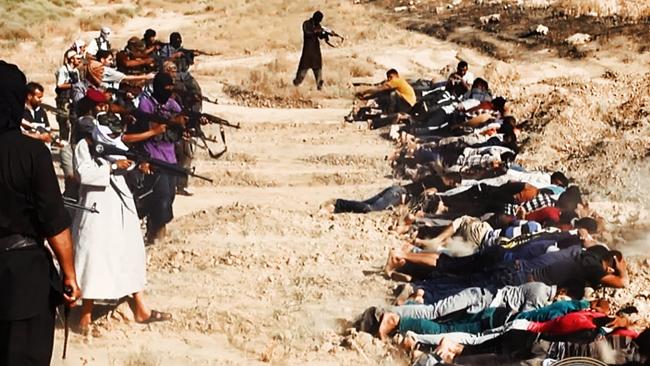Remember when Al-Qaeda were the evildoers? Ah, the good old days. The opening of Samiha Shafy’s Spiegel interview with Brookings Institution fellow Charles Lister about the seemingly sudden rise of the Islamic State:
“Spiegel:
How do you explain the history of the Islamic State (IS) to people who are stunned by its seemingly sudden rise to power?
Charles Lister:
In 1999, the IS father figure Abu Musab al-Zarqawi established a training base for his group in Afghanistan. After the United States invaded Afghanistan in late 2001, the group fled through Iran and ended up in northern Iraq. By 2003, it had effectively become Iraq’s main jihadist resistance movement. During the US occupation of Iraq, Zarqawi made a name for himself and his group. It implemented sharia law to such an extreme level that the various tribal forces rose up and drove them out in a movement called the ‘Awakening.’ The group suffered significant losses at the time. When the US began initiating its withdrawal, it marked the beginning of an opportunity for a revival of Zarqawi’s group. From about mid-2009 onwards, it began establishing a sort of shadow influence. It launched an escalating level of attacks against security forces, a campaign of intimidation against local officials — within the military, police and local governments — and one of extreme violence. The extent of the campaign created significant leverage for the Islamic State. It also helps to explain why the IS was able to take Mosul so quickly.
Spiegel:
You’ve said that the Islamic State has succeeded in doing essentially everything al-Qaeda had previously done, only better, with the exception of carrying out a foreign attack. How do the two groups compare?
Charles Lister:
Both seek to establish an Islamic state governed by sharia law, but they have very different strategies. Al-Qaeda has adopted a much more patient and long-term approach to implementing social control and governance, focused on creating the socio-political conditions for such a reality. The IS is much less patient in terms of this objective. Both in the mid-2000s and now, IS has always immediately sought to implement sharia law and govern the population just as soon as it takes control of a territory. Syria offers the best comparison in terms of strategy. Al-Nusra, the Syrian al-Qaeda affiliate, has extensive influence across the country at a social level, but they did not choose to implement sharia directly until quite recently because they felt the social conditions weren’t ready and that they would be rejected if imposed too soon. They have instead considered the long view.
Spiegel:
Would you say al-Qaeda is somehow less extreme than IS?
Charles Lister:
Absolutely.”
Tags: Charles Lister, Samiha Shafy

